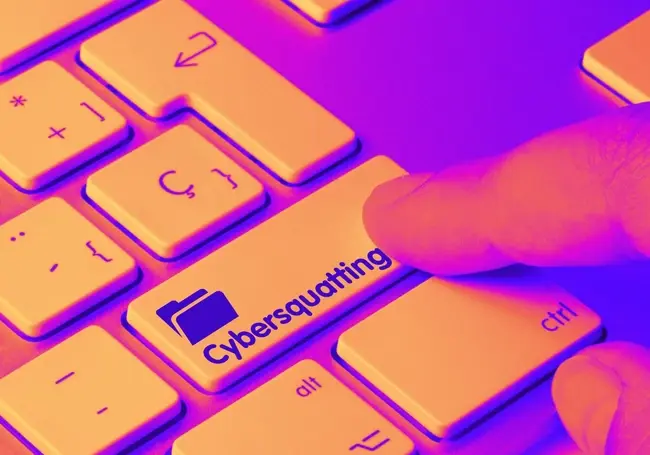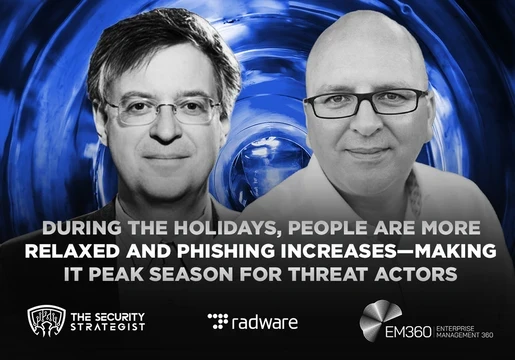Have you ever wondered how someone can profit from simply registering a website name?
Welcome to the world of cybersquatting. This digital land grab involves snapping up domain names that closely resemble well known sites with the intention of profiting from them. It's a deceptive practice that can cause significant harm to businesses and individuals alike.
In this article we’ll explore what is cybersquatting is, if it’s illegal and, and how to prevent being impacted by it.

What is Cybersquatting?
Cybersquatting is a type of cybercrime where a user will purchase and register a domain name with the intent to profit from a trademark belonging to another user or company.
Cybersquatting, also known as domain squatting, is a criminal act from bad actors who are hoping to profit from the reputation and goodwill of a legitimate business or individual.
Once they have secured the domain name, they often attempt to sell it to the rightful owner for a substantial profit.
Cybersquatters may also use these false domains to redirect users to malicious websites, that feature malware or phishing scams, or create counterfeit online stores to deceive consumers. This can damage a brand's reputation and lead to significant financial losses for both consumers and businesses.
To combat cybersquatting, many countries have put laws in place to help protect trademark owners. These acts and laws help businesses and individuals to protect their domain names and prevent damage caused by cybersquatters.
There are a few different forms of cybersquatting, including:
- Classic cybersquatting: This is the most common form of cybersquatting where a bad actor will register a domain name identical or very similar to an existing trademark with the intent to profit by selling it to the rightful owner.
- Typosquatting: Typosquatting involves registering domain names that are slight misspellings of popular websites to capitalize on user errors.
- Reverse hijacking: Reverse hijacking is when a malicious actor registers a domain name that is a variation of a well-known trademark and then tries to prevent the real trademark owner from using their own domain.
- Domain parking: This involves registering domain names and then displaying advertisements on the website to generate revenue. While not always malicious, it can still be seen as a form of cybersquatting if the domain name infringes on a trademark.
Is Cybersquatting Illegal?
Yes, cybersquatting is illegal in most countries. The Anticybersquatting Consumer Protection Act was passed in the US as early as 1999;. This American federal law aims to protect businesses and individuals from cybersquatting.
The APCA makes it illegal to register and purchase a domain name that is trademarked by another business or person. This law includes domain names that are intentionally similar to existing URLs.
Earlier legislation in the US was passed as early as 1946 with the Lanham Act. This legislation aims to protect trademark owners in all aspects and can be used against cybersquatters who intend to cause consumer confusion and the dilution of a trademark. As per the 2006 Trademark Dilution Revision Act, claimnet only need to show potential trademark dilution rather than prove that dilution has taken place.
Internationally, there is the World Intellectual Property Organization, known as WIPO, a specialized agency of the United Nations (UN). The agency oversees issues with international intellectual property rights, including issues around cybersquatting. WIPO uses the Uniform Domain Name Dispute Resolution Policy (UDRP), a set of rules established by the Internet Corporation for Assigned Names and Numbers (ICANN) to settle disputes.
How to Prevent Cybersquatting
Cybersquatting can be a significant threat to businesses as they can cause potential loss of customers damage to brand reputation, and financial loss.
To prevent your business being negatively impacted by cybersquatters, ensure that you have properly registered your trademarks. A registered trademark provides legal rights to prevent others from using your brand name in a confusingly similar way.
Register multiple domain extensions (e.g., .com, .net, .org) to reduce the chances of cybersquatters targeting similar names to you. You can also register misspellings of your domain name to deter typosquatting, where users are redirected to a malicious site after a typo
You can protect yourself from being fooled by cybersquatting by being vigilant over the websites you visit. Ensure you are visiting the correct website by double-checking the URL before entering sensitive information. Be wary of URLs that contain typos, misspellings, or unusual characters and bookmark trusted websites to avoid accidental clicks on fake domains.







Comments ( 0 )